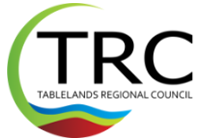Output by industry is a gross measure of the total sales of each industry sector in Tablelands. It does not measure how productive each industry sector is at producing this output - which is measured by value added.
By comparing the output of each industry sector to a regional benchmark, you can clearly see the structure of Tablelands’s economy. This can be done by directly comparing the percentage contribution of each industry to the total output, relative to the benchmark, or by using a location quotient, where a number greater than one indicates a high concentration of that industry and less than one indicates a lower concentration.
To get the full picture how each industry sector contributes to the regional or state economy, output data should be viewed alongside the other industry characteristics in the Industry sector analysis section.
Detailed data notes about how the figures are derived can be found in the specific topic notes section.
The gross measure of output includes the value of all the inputs to each industry.
Data source
National Economics (NIEIR) - Modelled series
Current benchmark:
Comparison year:
| Output by industry sector | |||||||||
|---|---|---|---|---|---|---|---|---|---|
| Tablelands | 2022/23 | 2017/18 | Change | ||||||
| Industry | $m | % | Queensland | $m | % | Queensland | 2017/18 - 2022/23 | ||
| Agriculture, Forestry and Fishing | 701.1 | 26.1 | 4.0 | 527.9 | 21.1 | 3.2 | +173.1 | ||
| Mining | 166.7 | 6.2 | 13.6 | 289.5 | 11.6 | 17.7 | -122.9 | ||
| Manufacturing | 183.0 | 6.8 | 10.4 | 194.7 | 7.8 | 11.2 | -11.7 | ||
| Electricity, Gas, Water and Waste Services | 94.0 | 3.5 | 3.9 | 97.1 | 3.9 | 3.7 | -3.1 | ||
| Construction | 368.6 | 13.7 | 13.3 | 390.1 | 15.6 | 14.4 | -21.5 | ||
| Wholesale Trade | 36.3 | 1.4 | 3.3 | 41.7 | 1.7 | 3.3 | -5.4 | ||
| Retail Trade | 137.8 | 5.1 | 3.7 | 129.9 | 5.2 | 3.6 | +7.9 | ||
| Accommodation and Food Services | 96.5 | 3.6 | 2.6 | 71.3 | 2.9 | 2.6 | +25.2 | ||
| Transport, Postal and Warehousing | 97.5 | 3.6 | 7.9 | 76.2 | 3.0 | 7.0 | +21.3 | ||
| Information Media and Telecommunications | 34.7 | 1.3 | 1.8 | 17.7 | 0.7 | 1.4 | +17.0 | ||
| Financial and Insurance Services | 43.3 | 1.6 | 4.6 | 49.5 | 2.0 | 4.2 | -6.2 | ||
| Rental, Hiring and Real Estate Services | 83.3 | 3.1 | 4.6 | 81.2 | 3.2 | 4.3 | +2.0 | ||
| Professional, Scientific and Technical Services | 87.0 | 3.2 | 5.7 | 72.1 | 2.9 | 5.4 | +14.9 | ||
| Administrative and Support Services | 73.8 | 2.8 | 2.8 | 50.9 | 2.0 | 2.7 | +22.9 | ||
| Public Administration and Safety | 90.0 | 3.4 | 4.6 | 74.3 | 3.0 | 3.8 | +15.7 | ||
| Education and Training | 102.2 | 3.8 | 3.5 | 102.4 | 4.1 | 3.5 | -0.3 | ||
| Health Care and Social Assistance | 200.5 | 7.5 | 6.4 | 155.0 | 6.2 | 5.2 | +45.5 | ||
| Arts and Recreation Services | 7.9 | 0.3 | 1.0 | 14.4 | 0.6 | 0.9 | -6.5 | ||
| Other Services | 79.4 | 3.0 | 2.3 | 63.8 | 2.6 | 2.0 | +15.5 | ||
| Total industries | 2,683.7 | 100.0 | 100.0 | 2,500.1 | 100.0 | 100.0 | +183.6 | ||
Source: National Institute of Economic and Industry Research (NIEIR) ©2024. Compiled and presented in economy.id by .id (informed decisions). Data are based on a 2020/21 price base for all years. NIEIR-ID data are inflation adjusted each year to allow direct comparison, and annual data releases adjust previous years’ figures to a new base year.Learn more Please refer to specific data notes for more information | |||||||||


Dominant groups
An analysis of the output by industry sectors in Tablelands in 2022/23 shows the three largest industries were:
- Agriculture, Forestry and Fishing ($701 million or 26.1%)
- Construction ($369 million or 13.7%)
- Health Care and Social Assistance ($201 million or 7.5%)
In combination these three industries accounted for $1,270 million in total or 47.3% of the total output by total industry in the Tablelands.
In comparison, the same 3 industries in Queensland accounted for 4.0% in Agriculture, Forestry and Fishing; 13.3% in Construction and 6.4% in Health Care and Social Assistance.
The major differences between output by industries of Tablelands and Queensland were:
- A larger percentage of output by Agriculture, Forestry and Fishing (26.1% compared to 4.0%)
- A smaller percentage of output by Mining (6.2% compared to 13.6%)
- A smaller percentage of output by Transport, Postal and Warehousing (3.6% compared to 7.9%)
- A smaller percentage of output by Manufacturing (6.8% compared to 10.4%)
Emerging groups
The total industry output in Tablelands increased by $184 million between 2017/18 and 2022/23.
The largest changes in the output by industries between 2017/18 and 2022/23 in Tablelands were for:
- Agriculture, Forestry and Fishing (+$173 million)
- Health Care and Social Assistance (+$46 million)
- Accommodation and Food Services (+$25 million)
- Administrative and Support Services (+$23 million)
